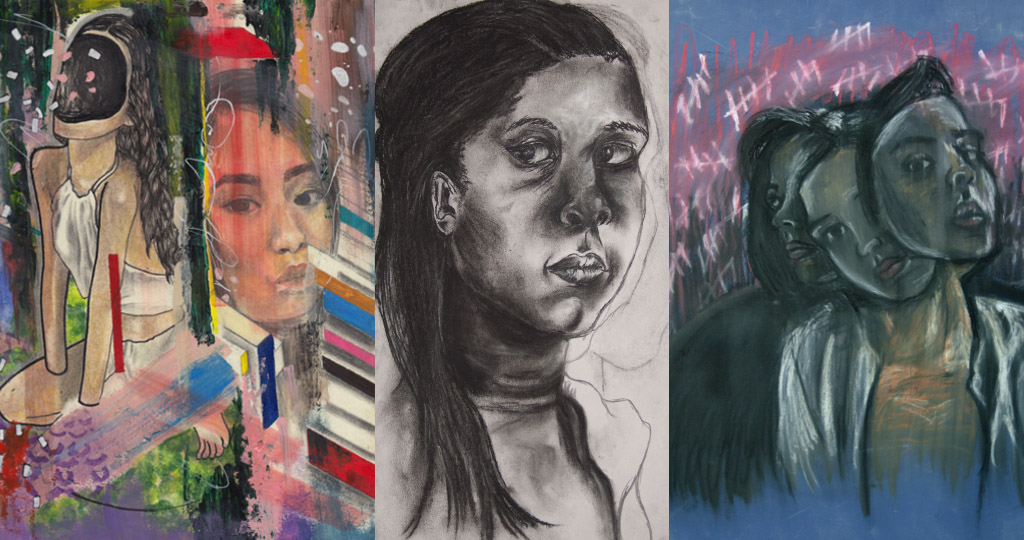A recent exchange has been chewing at me all day, so I thought I would share it with you. Yesterday, I only had half my students due to standardized testing. That being the case, the classes were a little, let’s say, unstructured. When this happens, I always have to keep an extra eye on discipline. This time was no different. I had to correct a few students repeatedly throughout one of my Art 1 periods. After regularly correcting two young men for continuing to get in each other’s personal space, I had a student at the same table, let’s call him Dave, turn to the door and tell someone walking past, “You gay.” I addressed every problematic part of that behavior, from using “gay” as a derogatory term to his poor grammar. The period continued, I corrected those two other boys again, and then I heard Dave call someone an “ass.” Without leaving my chair I looked at him and said, “Please use appropriate language in my classroom.” He responded with the classic, “Why are you always getting on me? Other people swear and you don’t get after them.” Now this didn’t make any sense because I had been correcting other students that period much more than him, but I responded anyway by saying, “Maybe it’s because you are loud and facing me. It’s the physics of sound. Sound travels in waves. If you would aim those sound waves away from me when you swear, I probably wouldn’t hear them.” He then responded with the phrase that has been eating at me all day, “No, it’s because I’m black.” Now, this isn’t the first student to throw this accusation at me, but I must say it is very rare. I do my best make sure I treat all my students with respect and fairness. To be clear, Dave isn’t the student I correct for behavior most in that class. Also, Dave isn’t the only black student in the class, while he is the only black student I have to regularly correct for behavior. From where I sit, there is no evidence to support Dave’s assertion that I am correcting him because he is black.
So, what do I do? Really, what can I do? There’s a part of me that is angry and defensive, that wants to prove Dave wrong and then punish him for even making such an accusation. But how do you prove you aren’t racist? I could point to all the former students of color that I have had that regularly stop by my room to say hi, or pull up personal photos showing the diversity of my personal life. I could have a black colleague tell him how great I am. That all just seems weird. Plus, saying, “I have black friends,” is the most clichéd thing a racist white person could say. So what am I going to do? I am going to apologize to Dave in front of the class. Right about now, you might be thinking, “That’s silly, you didn’t do anything wrong.” Well, that’s not the point. This isn’t about me, this is about Dave. I’m not here for me, I’m here for him. For some reason, Dave perceives me as racist. It’s possible that he’s just using this to get me to back down and let him slide on behavior, but it’s also possible that Dave has a long history of racist teachers in his past and that he’s grouping me in with them. The one thing that I know for sure is that we don’t get to decide how our actions are interpreted by others. There is a very real possibility that Dave is hurt, and that I am part of that hurt. I don’t get to tell Dave he isn’t hurt. I can’t disregard his emotional response just because I don’t feel that I caused it. I don’t have to apologize for being racist, because I am not. But I do have to apologize for letting him sit with the impression that I do not like him. And so today I will give Dave a sincere apology because it is my responsibility to make sure Dave has access to a quality education, and you can’t fully learn from someone you think is out to get you.

Major kudos to you! You are probably right that this kid has experienced racism in the past (whether from teachers or others) and thus has a lower threshold for such things. But as educators, we need to be supportive and recognize that each kid has a different perception of the classroom and authority figures. One positive interaction or apology probably isn’t going to “fix” it but seeing you make the effort, will definitely help. One step at a time.
LikeLiked by 1 person